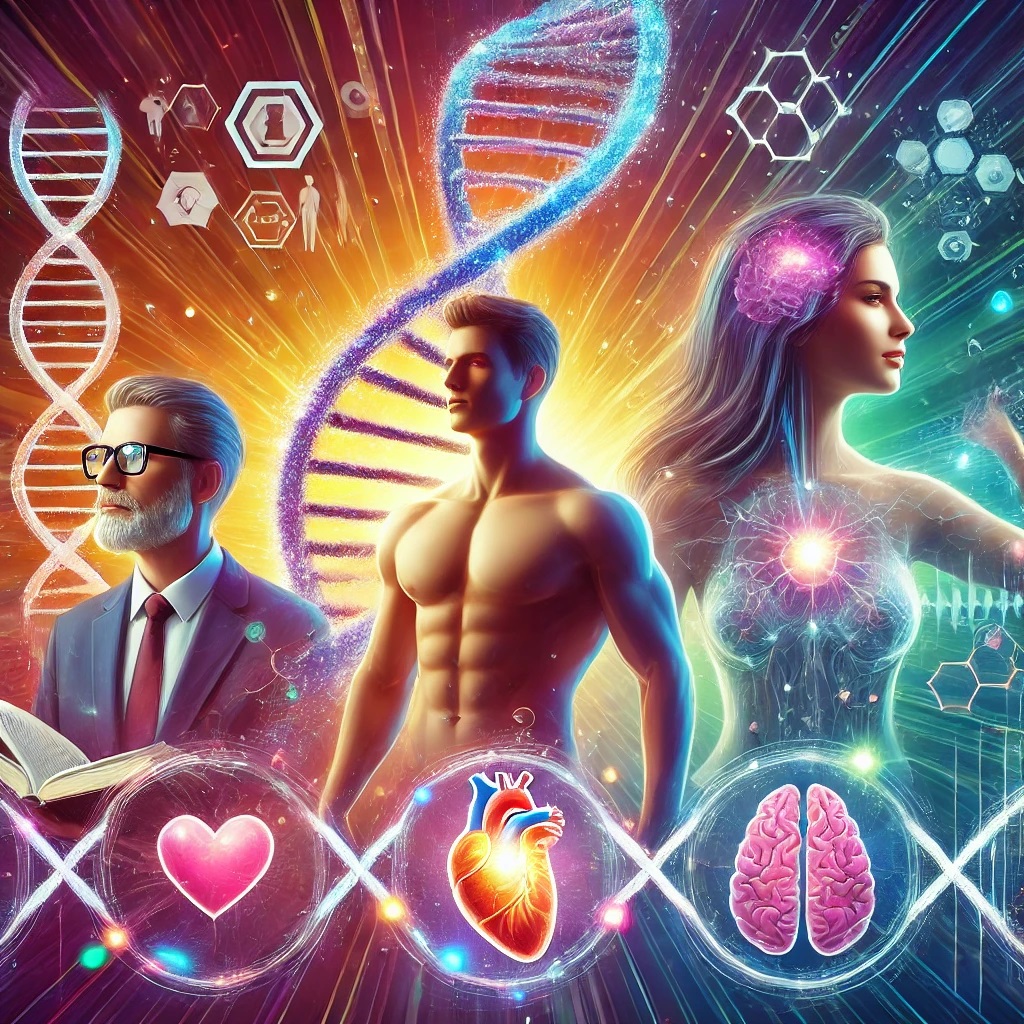The Health Legacy of Youth
Most chronic health issues don’t emerge out of nowhere - they begin in youth and early adulthood. By the time we hit 40, these problems have either progressed, triggered secondary complications, or both.
The causes? They’re surprisingly straightforward and boil down to what I call the health triad: genetics, infections, and toxins. Understanding and addressing these three factors early on is crucial. While trauma may occasionally play a role, it’s the exception rather than the rule.
How the Triad Shapes Your Health
-
Genetics
Many conditions, like autoimmune thyroiditis (Hashimoto’s), often have genetic roots. If you inherit certain gene variants and combine them with environmental triggers like frequent throat infections or tonsillitis, the stage is set for lifelong challenges.Another example is Gilbert’s syndrome, a genetic condition where inefficient bilirubin metabolism leads to a build-up of this byproduct in the body. This not only poisons tissues but also keeps the immune system in a chronic state of activation, contributing to systemic inflammation over time.
-
Infections
Viral, bacterial, and other infections acquired during youth often have lingering consequences. These aren’t just temporary setbacks—they can lead to autoimmune conditions, chronic fatigue, or other inflammatory states that manifest decades later. -
Toxins
Exposure to environmental toxins is a silent but persistent enemy. From heavy metals in food and water to pollutants in the air, toxins accumulate in the body and, if unmanaged, lead to metabolic dysfunction and hormonal imbalances.
When Genetics Aren’t Enough: The Alpha Persona Example
Even those blessed with excellent genetics - the socalled "alpha males" or "alpha females" , aren’t immune to the consequences of poor lifestyle choices. Consider this archetype in their prime:
- Sports: Intense physical activity generates oxidative stress.
- Risky Relationships: Poor sexual health practices can lead to infections like STIs.
- Substance Use: Alcohol, drugs, or other recreational habits introduce toxins into the body.
- High-Stress Activities: These elevate cortisol levels, contributing to systemic wear and tear.
By the time such individuals reach 40, even their genetic advantages may be spent, leaving them with an array of health challenges that could have been avoided with better care.
Karma and Consequences: Health Isn’t Just About Supplements
If you’ve spent your youth partying, drinking, smoking, and leaning on antidepressants to recover, then health issues are not just bad luck—they’re a predictable outcome of past behaviors. It’s not impossible to regain some health, but the process will be long, complex, and often limited by the damage already done.
Similarly, if your genetic lottery wasn’t favorable, your road to wellness requires more than willpower. It demands intelligence, resources, and a commitment to self-investment. Genetic testing, high-quality supplements, organic food, living in a clean environment - all these tools come at a cost. To overcome genetic predispositions, financial resources and strategic planning become indispensable.
The Takeaway: Protect Your Health Early
The key message here is simple: your health is a product of cumulative choices. Treat your body as the biological machine it is—high-performing yet vulnerable to breakdowns. Unlike machines, however, some "parts" can’t be replaced or repaired.
Start early:
- Invest in understanding your genetics through modern tools like genetic testing (e.g., 23andMe or Nebula Genomics).
- Avoid unnecessary exposure to infections through preventive care and safe practices.
- Limit your exposure to toxins—choose clean diets, minimize alcohol and tobacco use, and stay active.
For deeper insights into how early-life habits shape long-term health, books like The Telomere Effect by Dr. Elizabeth Blackburn and Lifespan by Dr. David Sinclair explore how cellular damage accumulates and how you can slow aging.
In the end, preserving health is about acknowledging that prevention is easier than cure. Don’t wait until your body starts breaking down to make changes - start today. Your 40-year-old self will thank you :)
Editor:
Jonathan Haidt, 11/2024 (c) https://selidiknews.com/

